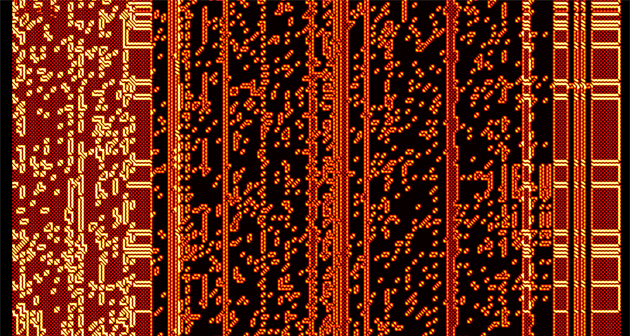A new report includes recommendations to help campuses create cyberinfrastructure that allows seamless collaboration and data sharing.
The organizers of a campus bridging workshop held last October in Anaheim, CA, have released a final workshop report that includes recommendations to help campuses create cyberinfrastructure that allows seamless collaboration and data sharing across a campus, across multiple campuses and on the national and international levels.
The report, titled Campus Bridging: Campus Leadership Engagement in Building a Coherent Campus Cyberinfrastructure Workshop Report is available at http://pti.iu.edu/campusbridging/leadership
Patrick Dreher, adjunct professor of computer science at North Carolina State University, visiting scientist at MIT and formerly with RENCI (Renaissance Computing Institute at UNC Chapel Hill) chaired the National Science Foundation workshop and served as editor of the report. Stan Ahalt, director of RENCI; Guy Almes, Texas A & M University; Michael Mundrane, University of California, Berkeley, Jim Pepin, Clemson University; and Craig Stewart, Indiana University, co-authored the report and served on the workshop organizing committee.
“Effective implementation of campus cyberinfrastructure is essential to solve the complex multidisciplinary problems of the 21st century and it requires a coordinated effort among academic and research institutions, ” said Dreher. “If we are to use cyberinfrastructure to bridge campuses and universities and connect researchers to each other and to cyber resources, we need the support of senior university administrators. This workshop provided a forum for senior university administrators to express their views on cyberinfrastructure challenges and opportunities, and to offers their ideas and suggestions about how their institutions’ resources can be bridged.”
The workshop report includes four recommendations to enable campus bridging:
- Campuses should provide their educators and researchers with a seamless, highly capable, and accessible cyberinfrastructure to support collaborative research and education.
- Campuses should develop and deploy cyberinfrastructure master plans in order to identify and plan for the changing research infrastructure needs of faculty and researchers.
- In order to encourage campuses to implement these master plans, the National Science Foundation should fund a study and report on successful campus cyberinfrastructure implementations. This would help to document and disseminate best practices for strategies, governance, financing and deployment of cyberinfrastructure.
- U.S. colleges and universities should include cyberinfrastructure costs in their negotiated facilities and administration rates, which are included as part of grant awards. The resulting F & A income from grant awards should be used strategically and in support of the campus cyberinfrastructure master plan.
The workshop recommendations were developed using input received during two days of discussion among workshop participants as well as formal presentations. Workshop discussions included an overview of the current state of campus bridging, the role of campus leadership in promoting campus bridging and the challenges and opportunities related to a number of cyberinfrastructure categories, including:
- Coherent computing and data infrastructure
- Digital curation and data services
- Data networking in research cyberinfrastructure
- Cyberinfrastructure support and expertise
- Cyberinfrastructure and administrative computing
- Cyberinfrastructure governance models
- Financial structures in academic research
Thirty-nine leaders from academic institutions across the U.S. attended the Anaheim workshop, which was hosted by the University of Southern California and held in conjunction with the EDUCAUSE annual conference. The NSF provided funding for the workshop and RENCI, Indiana University’s Pervasive Technology Institute and Texas A&M University provided additional support.
The workshop report and recommendations, as well as reports from two other campus bridging workshops were used in developing the final report of the NSF’s Advisory Committee for Cyberinfrastructure (ACCI) Task Force on Campus Bridging.
The Campus Bridging Task Force was one of six established by the NSF in 2009 to investigate long-term cyberinfrastructure issues. Each task force subsequently discussed and generated a final report containing recommendations and ideas for advancing cyberinfrastructure in support of NSF research. The final reports of all of the six task forces are available on the NSF website.



